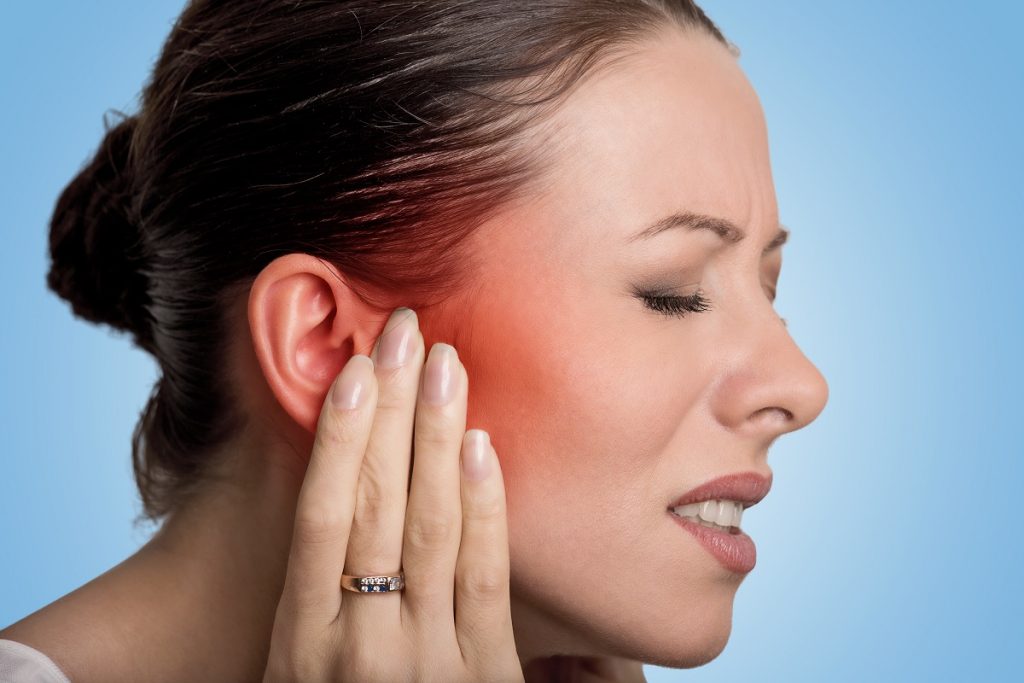- Otitis media is an infection or inflammation of the middle ear that can occur in children and adults.
- Common causes of otitis media in adults include colds/flu, sinus infections, smoking, allergies, and water exposure.
- Preventive measures include getting ears cleaned regularly, practicing good hygiene, and avoiding smoking.
- Allergies should be managed with treatments such as antihistamines and decongestants to reduce the risk of ear infections.
Otitis media is a term that describes an infection of the middle ear. Various factors can cause it, which can occur in children and adults. While it is more commonly associated with children, adults can also develop otitis media. Here’s what you need to know about otitis media, the common reasons behind it, and how you can prevent it from happening.
What is Otitis Media?

Otitis Media or ear infections are pretty common among children in the U.K. It’s a medical term that refers to an infection or inflammation of the middle ear. The middle ear is a location behind the eardrum, with small vibrating bones transmitting sound in the ear.
Acute Otitis Media (AOM)
This is the most common form of middle ear infection. It typically occurs as a result of a bacterial or viral infection. AOM is often accompanied by symptoms such as ear pain, fever, fluid buildup in the middle ear, diminished hearing, irritability (in infants and young children), and sometimes, drainage of pus from the ear.
Otitis Media With Effusion (OME)
Also known as “glue ear,” OME is characterized by fluid in the middle ear without an active infection. It can occur after an episode of acute otitis media or due to other factors such as allergies or changes in atmospheric pressure. OME may cause mild hearing loss, fullness in the ear, and sometimes, balance issues.
Chronic Otitis Media (COM)
This condition involves long-lasting inflammation and recurrent infections of the middle ear. It may develop due to repeated acute otitis media episodes or persistent OME. Chronic otitis media can cause ongoing ear pain, hearing loss, drainage from the ear, and potentially damage to the middle ear structures.
Otitis Media Among Adults
Otitis media is common among children but can also happen in adults. Here are some common reasons behind otitis media among adults:
Colds and Flu
One of the most common causes of otitis media in adults is a cold or flu. These illnesses cause inflammation and swelling in the Eustachian tube, leading to infection in the middle ear. Symptoms of otitis media due to a cold or flu may include ear pain, fever, and hearing loss.
Sinus Infections
Sinus infections can also lead to adult otitis media. When sinuses become inflamed, they can block the Eustachian tube, trapping fluid in the middle ear. This fluid can then become infected, causing painful symptoms. Treatment for sinusitis-related otitis media often involves antibiotics and decongestants.
Smoking

Smoking can cause a variety of health problems, including ear infections. The chemicals in cigarettes can cause problems in your ear canal, making it more susceptible to infection. Smokers are also more likely to develop chronic otitis media, which can lead to permanent hearing loss.
Allergies
Allergies can lead to otitis media in a couple of ways. First, allergic rhinitis (hay fever) can cause inflammation and swelling in the Eustachian tube. Second, an adult with a food allergy may develop otitis media due to an allergic reaction. Treatment for allergies-related otitis media often involves antihistamines and decongestants.
Water Exposure
If an adult swims frequently or works in a job exposed to water, they may be at risk for otitis media. Water in the ear can break down the skin in the ear canal, making it easier for bacteria to enter and cause an infection. Wearing earplugs or using a towel to dry the ears after exposure to water can help prevent otitis media.
Prevention of Otitis Media
Otitis media is standard but can be prevented. Here are four tips that help prevent it:
Get Your Ears Cleaned
Ear wax can be home to bacteria and other harmful microorganisms that can lead to otitis media. It’s essential to have your ears cleaned regularly to avoid infections. A private ear micro-suction service can help remove excess wax and other debris from the ear, reducing your risk of developing otitis media. The service uses gentle suction to remove the wax without using cotton buds, which can even infect your ears.
Practice Good Hygiene
Regular handwashing can help prevent the spread of infectious organisms. It’s also important to avoid sharing personal items such as headphones and earbuds, which may carry bacteria that can cause otitis media.
Avoid smoking
Smoking is one of the significant causes of otitis media in adults. Quitting or avoiding smoking altogether can reduce your risk of ear infections.
Manage Allergies
If you have allergies, it’s essential to keep them under control with treatments such as antihistamines and decongestants. This will help reduce inflammation in the Eustachian tube, which can lead to ear infections.
These tips can reduce your risk of developing otitis media and maintain good ear health. You must see your doctor for diagnosis and treatment if you suspect an ear infection. With the proper care and prevention strategies, otitis media can be managed effectively.


